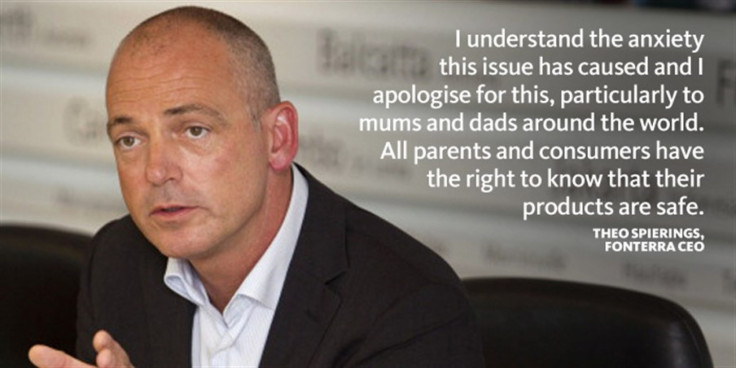New Zealand’s Fonterra Suspends Its Sri Lanka Operations After Court Bans, Protests Over Its Milk Products

New Zealand’s Fonterra Co-operative Group (NZE:FCG), on Friday, suspended its operations in Sri Lanka, following protests and a court order against the sale of the dairy giant’s milk products in the island nation.
Earlier this week, a Sri Lankan court had banned Fonterra from selling or advertising its products, after the country’s food safety institute said it had found an agricultural chemical -- dicyandiamide, or DCD, -- in two batches of the company’s milk powder.
The revelations led to strong demonstrations against the company’s Sri Lankan subsidiary forcing the company to temporarily suspend its operations.
“The temporary suspension is the right thing to do. It is a precautionary measure to ensure our 755 people working there are safe. We have closed our plants and office in Sri Lanka, and have asked our people to stay at home,” CEO Theo Spierings said, in a statement. “At the same time, we must do all that we can to protect our farmer shareholders’ investment in Fonterra’s Sri Lanka manufacturing and commercial operations.”
Fonterra had denied allegations of DCD contamination in its milk products and resumed operations despite the protests, leading to a contempt of court charge against four of its top officials for not adhering to court orders.
“Fonterra Sri Lanka is currently subject to a court Enjoining Order which has shut down our ability to sell product, advertise it or make public statements in any way with customers or consumers in Sri Lanka,” Spierings said. “Legal action is underway that is aimed at resolving the Enjoining Order.”
Meanwhile, the Industrial Technology Institute, or ITI, which conducted the tests on two batches of Fonterra’s Anchor brand milk products that tested positive for DCD, said, on Thursday, that it will test all milk powder brands available in the market.
"Now we have decided to test all the milk powder in the market including other Fonterra products," ITI Chief Executive G.A.S. Premakumara told reporters, Reuters reported.
Fonterra said it is working with authorities in Sri Lanka and New Zealand to address the contamination problem. However, demonstrations were held by the National Freedom Front, a hardline nationalist political party in President Mahinda Rajapaksa's ruling coalition, in front of Fonterra’s local office near Colombo, demanding a ban on all Fonterra products.
Milk production is a hot political topic in the island nation, which heavily depends on imports to meet a bulk of its dairy needs. Last year, about two-thirds of the country’s total milk powder imports, worth about $300 million, came from New Zealand.
The Sri Lankan government, in recent years, has been promoting the local dairy industry to reduce dependency on imports. Fonterra, one of the leading exporters of dairy products in the world, has a sizable share of Sri Lanka’s dairy market.
Earlier this month, Fonterra was at the center of a worldwide botulism scare, after the company admitted that some of its products could be contaminated by botulism-causing bacteria. The company recalled the suspected batches of products, and the development led to an import ban on the company’s products in some countries, including China.
© Copyright IBTimes 2024. All rights reserved.












